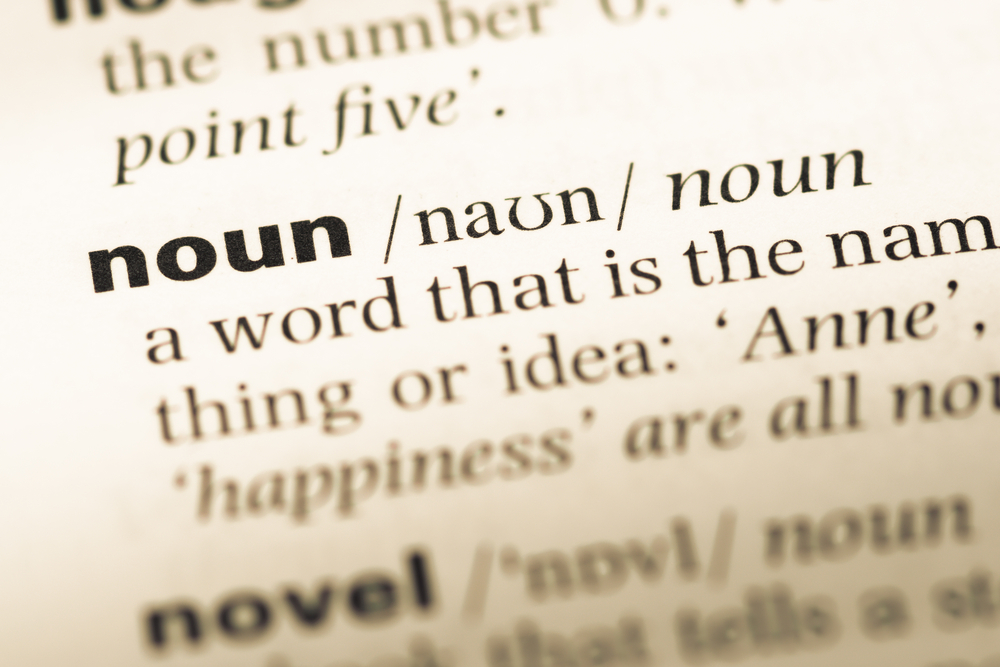Alphabet sequencing Worksheets for 6-Year-Olds
8 filtered results
-
From - To
Discover our engaging Alphabet Sequencing Worksheets designed specifically for 6-year-olds to enhance their letter recognition and sequencing skills. These worksheets provide a fun and interactive way for young learners to practice the alphabet in order. Activities include tracing letters, filling in missing letters, and engaging puzzles that foster early literacy skills. Perfect for use at home or in the classroom, our worksheets cater to different learning styles while helping children build confidence in their reading and writing abilities. Encourage your child’s love for learning with our colorful and educational resources, designed to make mastering the alphabet a delightful adventure!
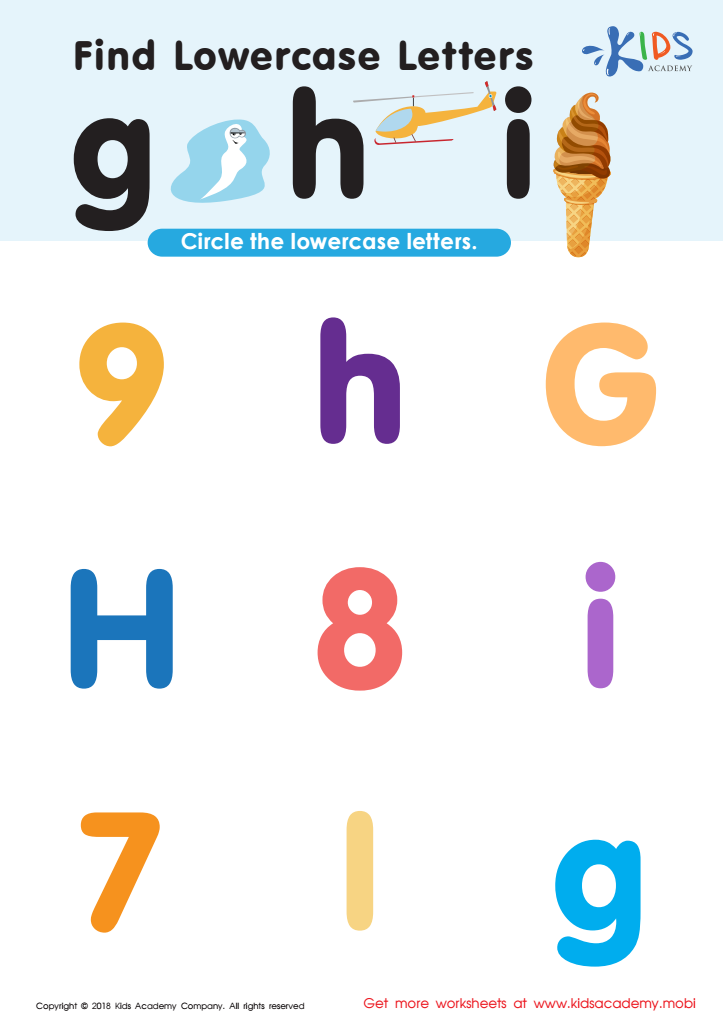

Find Lowercase Letters g h i Worksheet
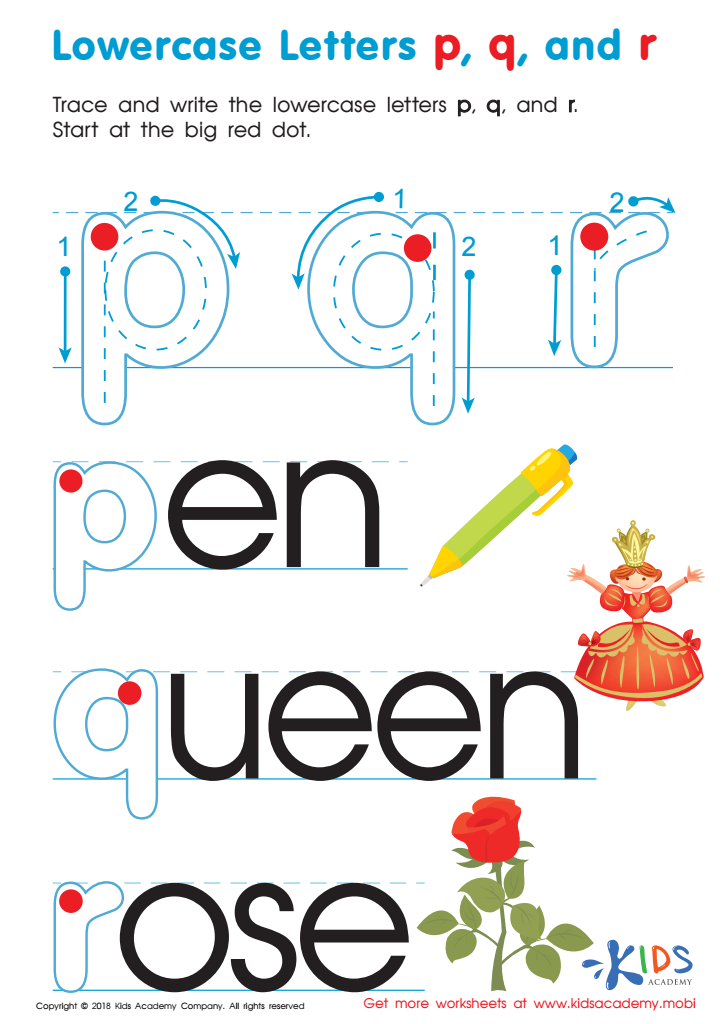

Lowercase Letters p q r Worksheet
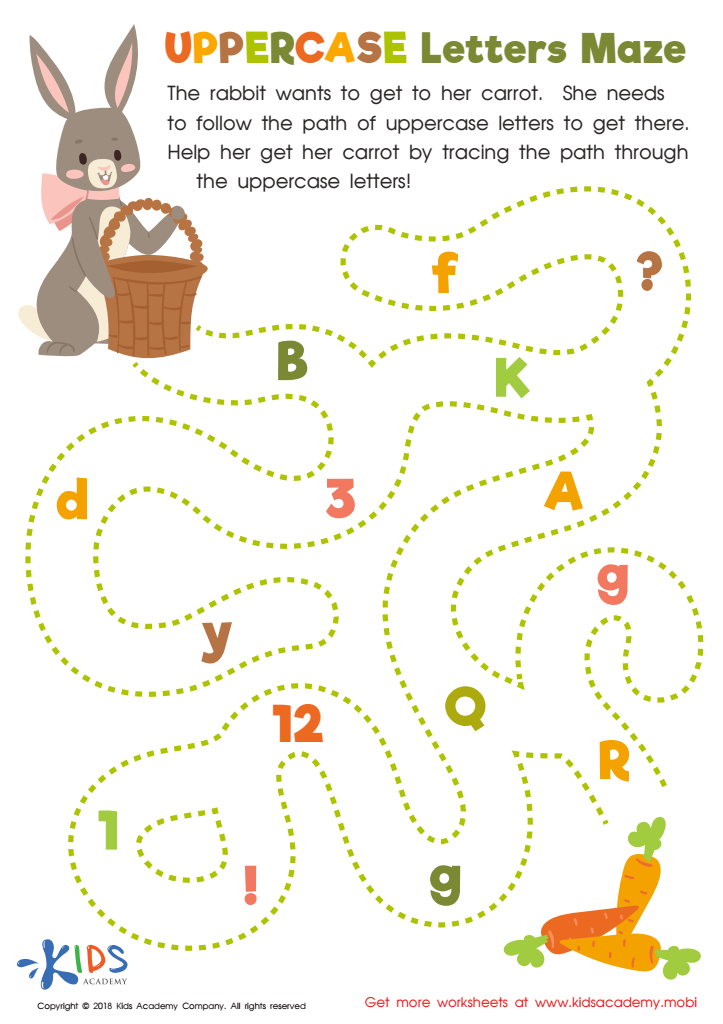

Uppercase Letters Maze Worksheet
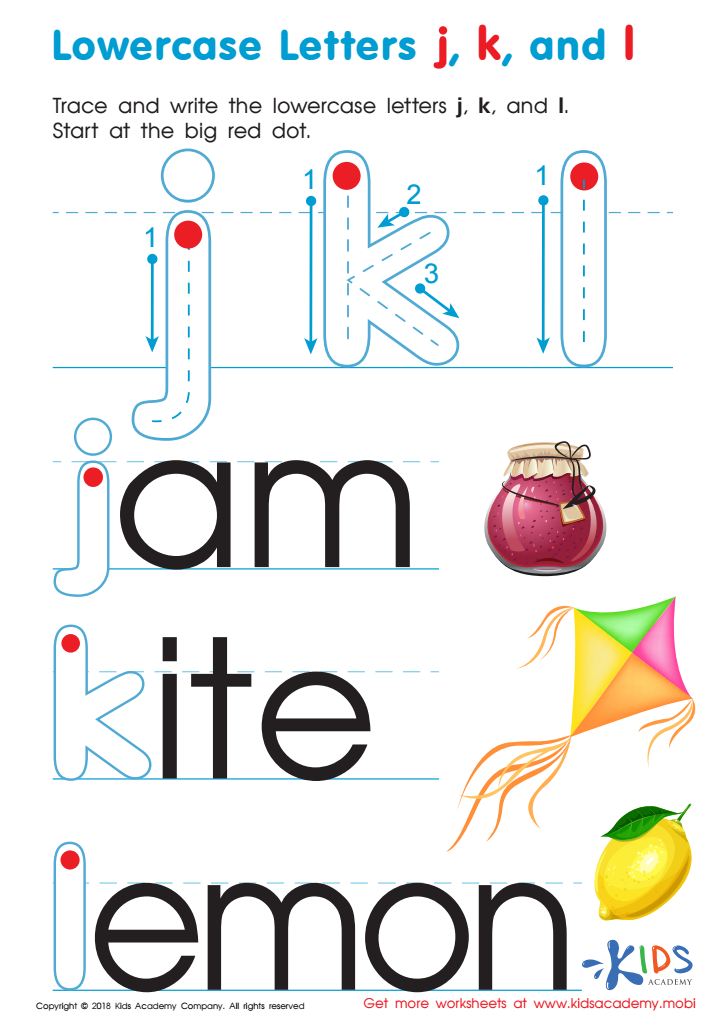

Lowercase Letters j k l Worksheet
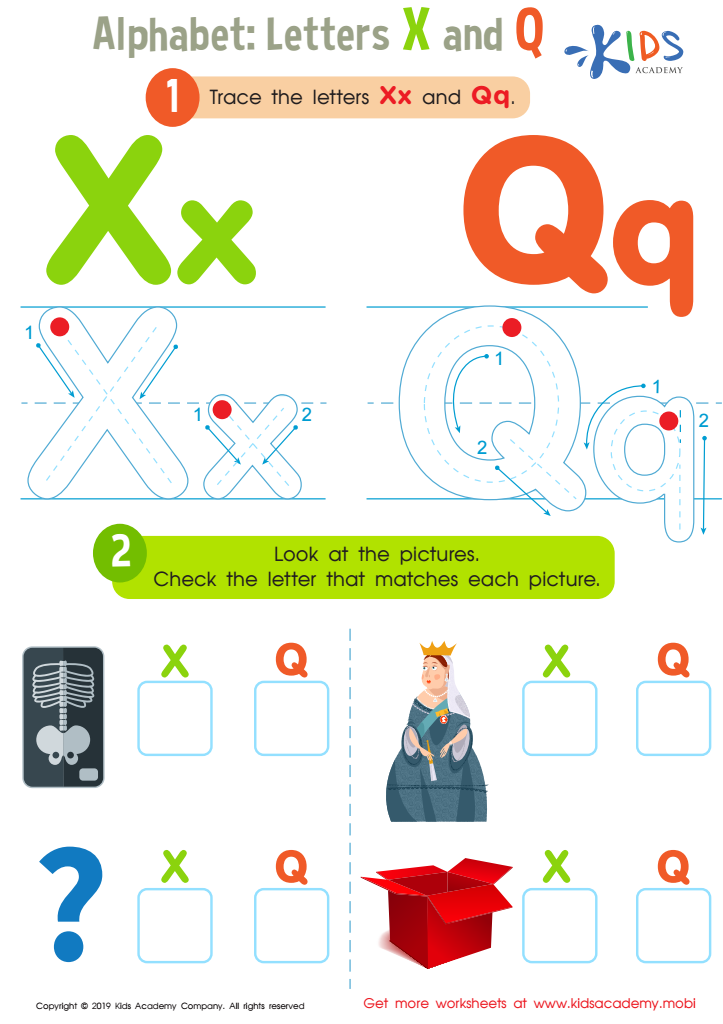

Letters X and Q Tracing Worksheet
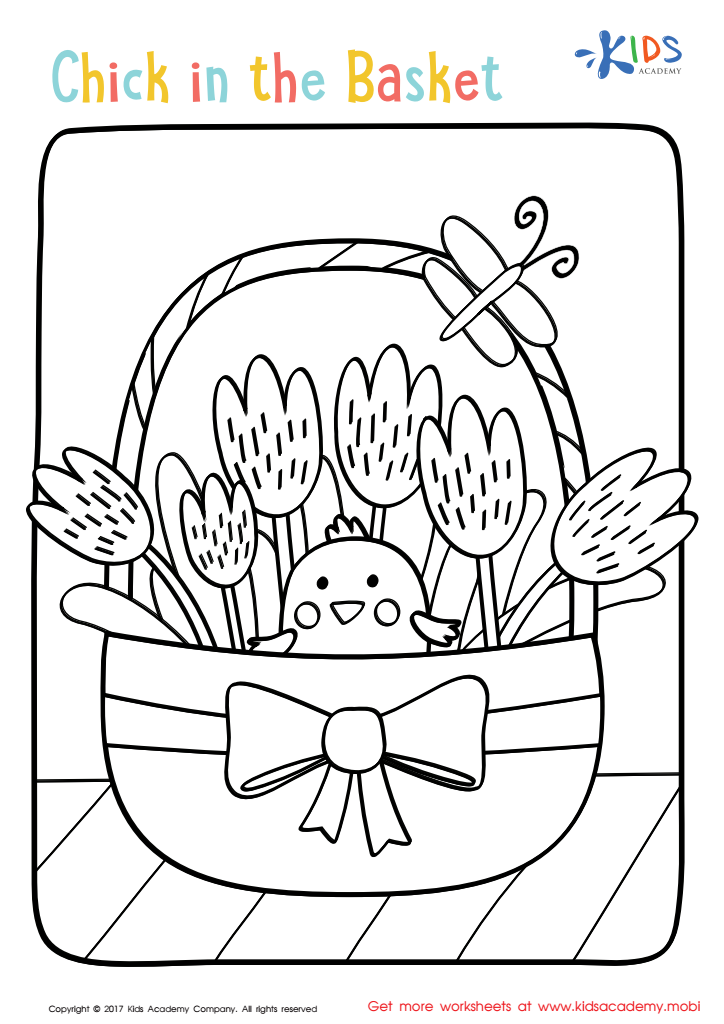

Easter: Chick in the Basket Worksheet
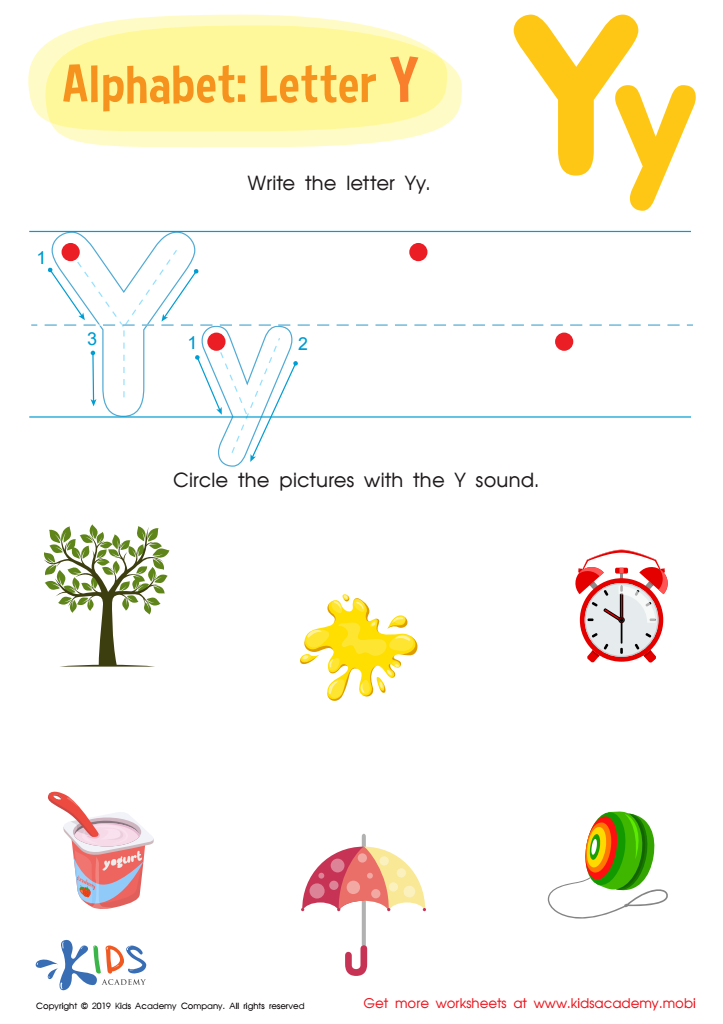

Letter Y Tracing Worksheet
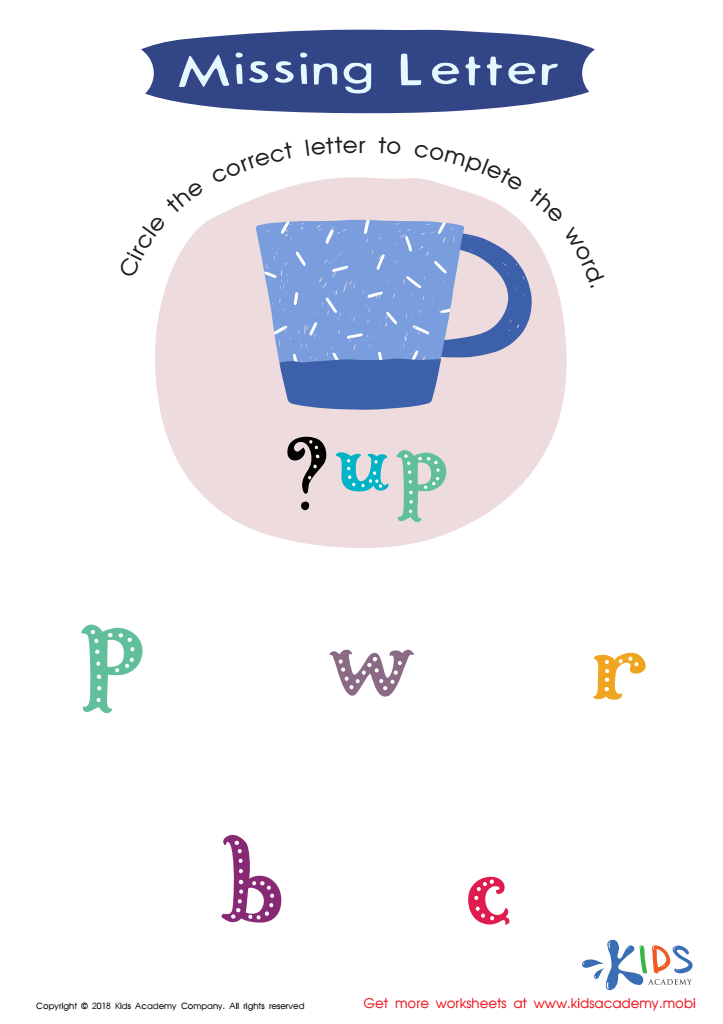

Missing Letter Worksheet
Alphabet sequencing is crucial for six-year-olds as it lays the foundation for literacy development and overall cognitive skills. At this age, children are beginning to read and write, making understanding the order of letters essential. Knowledge of alphabet sequencing enhances phonemic awareness, enabling children to recognize and manipulate the sounds in words, which is vital for reading fluency.
Moreover, alphabet sequencing helps improve memory and organizational skills. By learning the sequence of letters, children can better grasp the structure of words and sentences, essential components in writing tasks. This skill supports future learning as children encounter more complex language and literacy activities.
Additionally, recognizing the alphabet's sequence fosters confidence in early learners, empowering them in their reading and writing journey. Parents and teachers play an essential role in this developmental milestone; they can create engaging activities, such as songs or games, to make learning fun and effective.
In a world increasingly driven by literacy, parents and teachers must prioritize alphabet sequencing to ensure children are equipped with the necessary tools to navigate the academic landscape confidently. Supporting children in mastering this foundational skill can significantly influence their future educational success.

 Assign to My Students
Assign to My Students





.jpg)

